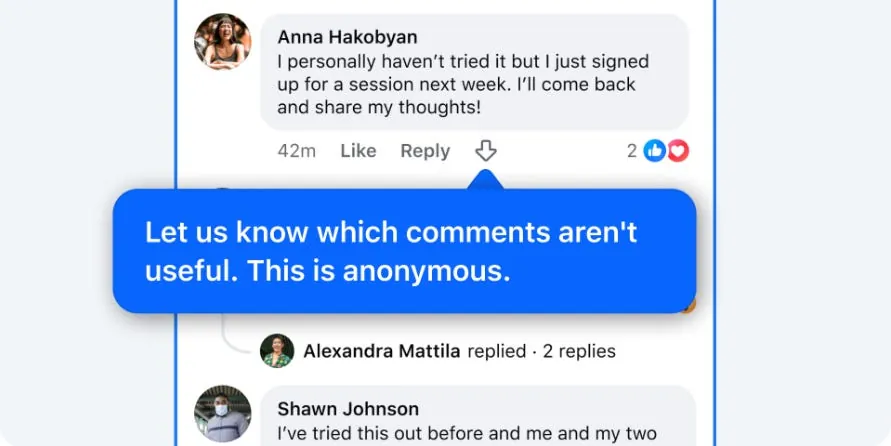
Facebook Tests Controversial Downvote Button: A Game Changer or Just Another Experiment?
2025-04-26
Author: Ming
In a bold move to revamp the user experience, Facebook is testing a new "downvote" button designed to help users flag comments they find unhelpful. This initiative is part of Meta's broader strategy to clean up the platform and reduce spammy content, all while Mark Zuckerberg emphasizes making Facebook "great again."
The concept of a downvote button isn’t entirely new. Since the inception of the "like" button back in 2009, users have clamored for a corresponding "dislike" option. Although Meta has toyed with similar features in the past, they’ve never fully embraced the idea. Instead, Facebook opted for a range of reaction emojis, allowing users to express a wider variety of feelings beyond simple affirmation.
Geoff Teehan, a former product design director at Facebook, argued in 2016 for a more nuanced approach, stating that a binary like/dislike system doesn’t capture the complexity of human emotions. He explained that simply adding a thumbs down would overlook the sophisticated communication we engage in daily.
In 2017, the company even rolled out a thumbs down reaction in Messenger, mirroring capabilities in Apple's iMessage, but this feature never saw a significant launch.
Fast forward to this year, Instagram's head Adam Mosseri hinted at potential downvoting tests for comments on that platform, igniting further speculation about user feedback mechanisms in social media.
Meta's spokesperson clarified that this latest downvote test is focused on utility, assuring users that the button is intended to help identify comments that are genuinely unhelpful. Notably, a descriptive text bubble below the button will read, "Let us know which comments aren't useful," attempting to guide users toward constructive participation.
However, the burning question remains: will users utilize this feature for its intended purpose, or will it devolve into a tool for silencing opposing viewpoints? The test is still in its early phases and may not lead to an official rollout.
In the grand scheme of Facebook's ongoing struggle with content moderation, critics argue that addressing the flood of AI-generated posts might take precedence over downvoting individual comments. Yet, only time will tell if Facebook's latest experiment will successfully enhance user interaction or merely add another layer of complexity to the platform.


 Brasil (PT)
Brasil (PT)
 Canada (EN)
Canada (EN)
 Chile (ES)
Chile (ES)
 Česko (CS)
Česko (CS)
 대한민국 (KO)
대한민국 (KO)
 España (ES)
España (ES)
 France (FR)
France (FR)
 Hong Kong (EN)
Hong Kong (EN)
 Italia (IT)
Italia (IT)
 日本 (JA)
日本 (JA)
 Magyarország (HU)
Magyarország (HU)
 Norge (NO)
Norge (NO)
 Polska (PL)
Polska (PL)
 Schweiz (DE)
Schweiz (DE)
 Singapore (EN)
Singapore (EN)
 Sverige (SV)
Sverige (SV)
 Suomi (FI)
Suomi (FI)
 Türkiye (TR)
Türkiye (TR)
 الإمارات العربية المتحدة (AR)
الإمارات العربية المتحدة (AR)